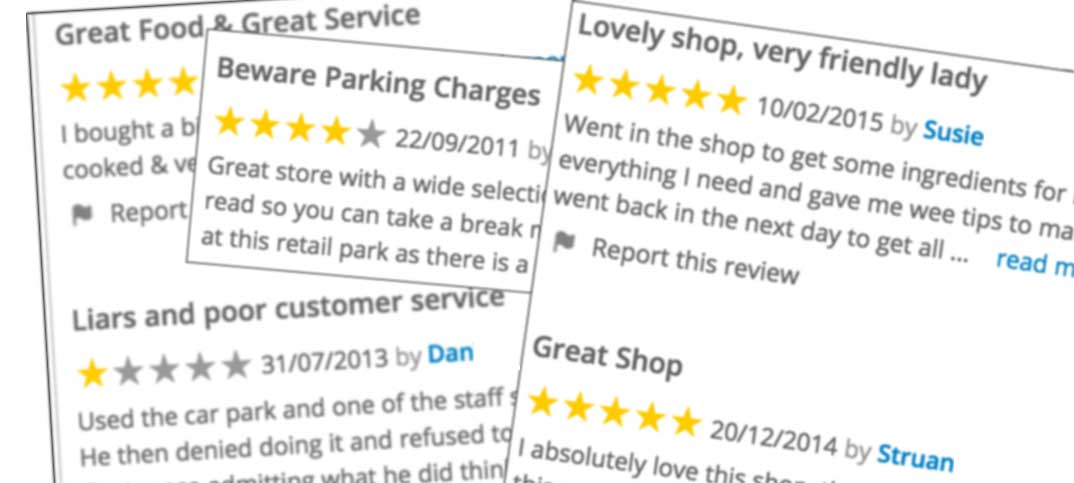The world around us is changing faster than we think and every business needs to become more aware of the power that smartphones give consumers and shoppers.
Last weekend I was measuring up two panes of glass for my greenhouse. I had my smartphone to hand to make a note of the measurements. After keying in the data I simply Googled the number of a company Local Glass, where I had bought some replacement panes last year, standing by the greenhouse.
However, the autodial feature did not work. I scrolled down to the next link which included ratings and ranks. A consumer review showed that five shoppers had scored this firm one star and one five star. A one star review flashed up. My next thought was I need to find somewhere else.
But the listing of alternatives was by name rather than by location and as I was passing by Local Glass later that morning I thought it would be more convenient to get the glass from them. How bad could they be? So I called them up.
Later, after paying for the glass I mentioned the reviews and asked if they had a social media plan. Why, he asked?
I explained about the reviews. Yes, he said, we have seen the reviews and we have worked out who they were and they were not good customers. So what is your plan for good customers, I asked. He looked at me blankly.
Earlier that week I had jumped into a London black cab to see a big sign inside that said ‘cash payments only’. It was the only message. I asked the driver about this. He was defensive, mentioned the cost of taking cards and said it only inconvenienced tourists. I asked if he was worried that Uber and similar apps would take away his business. He said he had put his hopes in the High Court action against Uber.
He was a nice man. Yet his family business model is at risk. Just as is the business model of Local Glass. Their businesses are at risk because they have a product-centric view of the market. The old marketing model of product, price, place and promotion needs to be rethought.
This is because the asymmetry of information that used to support local shops and taxi services has flipped the other way around. Consumers, on their phones, have access to the knowledge they need.
Local Glass should be reassuring potential shoppers that they go out of their way to get things right. Otherwise, Amazon or eBay is going to do that job better – no matter how far away they are.
The cab driver needs to know that consumers expect for it to be easy to pay even when they don’t have cash in their pockets. Alternatives will arrive no matter how many court cases are taken.
Think beyond the four Ps (product, price, place and promotion). Think in terms of the four Cs:
- Customer need/value
- Cost (of ownership)
- Convenience
- Communication
The world of consumers and shoppers is changing fast. The better you know your consumer and shopper, the better you will do.





Comments
This article doesn't have any comments yet, be the first!